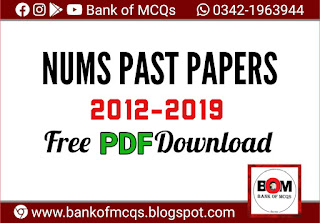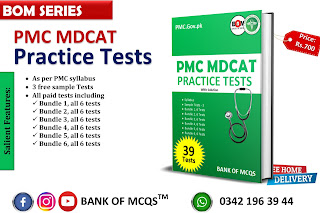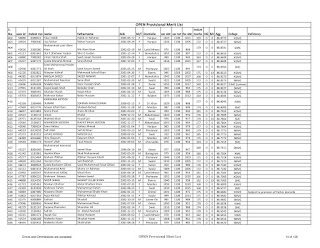Chap.23 Chromosomes and DNA MCQs
|
1. |
|
|
|
2. |
It
is not needed for genetic engineering (a)
Mesosôme (b) Vector (c)
Molecular Scissor (d) None |
A |
|
3. |
Restriction
endonuclease is a: (a)
Gene (b) Vector (c)
Enzyme (d) None of
these |
C |
|
4. |
Eco
RI is the commonly used: (a)
Polymerase (b)
Ligase ©
Restriction Enzyme (d) None of these |
C |
|
5. |
Plasmid
is found in: (a)
Bacteriophage (B) E.Coli (c)
Entamoeba (d) None of these |
A |
|
6. |
PSC
1021 Nested has antibiotic-resistant gene for (a)
Ampicillin (b) Tetracycline (C)
Penicillin (d) None of
these |
A |
|
7. |
It
binds the foreign gene into the plasmid: (a)
Transcriptase (b) Ligase (c)
Isomerase (d) None of
these |
B |
|
8. |
DNA
polymerase is extracted form: (a)
Term Terrestrial (b) None of these (c)
Thermos Equation (d) Vinus |
B |
|
9. |
The
entire human genome was published in: (a)
1999 (b) 2000 (c)
2001 (d) None |
D |
|
10. |
It
is a preferable vehicle for biotechnology product: (a)
Milk (b) Blood (C)
Urine (d) None |
B |
|
11. |
A
chromosome with unequal length of its arms is called: (a)
Metacentric (b)
Submetacentric (c)
Acrocentric (d)
Telocentric |
B |
|
12. |
In
Hershey and Chase experiment, P32 Tabelled bacteriophages allowed to infect
the bacteria.
During analysis P32 activity was detected: (a)
In Culture Medium (b)
On the Surface of Bacterial Cell (c)
Inside the bacterial cell (d)
Both a and b |
C |
|
13. |
In
Meselson and Stahl experiment, the DNA from sample at 20 minutes, after centrifugation
it made sediments at the: (@)
Top (b) Bottom (c)
Intermediate (d) Top and
Intermediate |
C |
|
14. |
Which
of the following acts as stop codon? (@)
UGG (b) UGC (c)
UAG (d) UGU |
C |
|
15. |
In
mitochondria UGA colon acts to specify instead of stop codon: (a)
Arginine (b) Valine @
Glutamic Acid (d) Tryptophan |
D |
|
16. |
If
the amount of adenine in DNA of a bacterial cell is 36% of the total
nitrogenous bases, what will be the amount of guanine in the DNA of a cell in
next generation? (a)
14% (b)
28% (c)
36% (d)
64% |
A |
|
17. |
If
a mRNA is synthesized with all the different codons, what is the minimum
number of amino acids in the protein that is formed by mRNA? (a)
64 Amino Acids (b) 62 Amino Acids (C)
60 Amino acids (d) None of these |
C |
|
18. |
In
eukaryotic mRNA molecule, there are 90 nucleotides involved in translation
process. What is the number of amino acids in the protein formed by this mRNA
molecule? (a)
29 Amino acids (b) 30 Amino acids (c)
45 Amino acids (d) 90 Amino acids |
C |
|
19. |
Q19)
In Griffith experiment mice developed pneumonia
when they were injected with: (a)
R-Type Bacteria (b)
heat killed s-type bacteria (c)
Heat killed r-type bacteria (d)
Head killed s-type bacteria along with liver type bacteria |
D |
|
20. |
If
the codon consisted of only two nucleotides there would be how many possible
codons? (a)
4 (b) 8 ©
20 d) 16 |
D |
|
21. |
All
of the following about the structure of DNA are correct except: (a)
DNA is a polymer (b)
DNA contains deoxyribose (c)
Two strands are connected by hydrogen bonding (d)
Adenine bonds to guanine |
D |
|
22. |
DNA
can be cut into small pieces with: (a)
Introns (b) Exons (C)
PCR (d)
Restriction Enzymes |
D |
|
23. |
All
of the following are correct about RNA processing except:. (a)
It is a rare occurrence and results in mutations (b)
Introns are removed (c)
It occurs after transcription (d)
The Initial Transcription is Longer Than the Final Transcript |
A |
|
24. |
Polyploidy
results from: (a)
Nondisjunction (b) Aneuploidy (c)
Down Syndrome (d) RNA Processing |
A |
|
25. |
XXY
syndrome is also known as: (a)
Turner's Syndrome (b)
Down Syndrome (c)
Klinefelter's Syndrome (d)
Mutation |
C |
|
26. |
Which
of the following are non-sense codons? (a)
AUG (b) UAA (c)
CUA (d) All of
these |
B |
|
27. |
In
bacteria, the newly synthesized mRNA is released in: (a)
Nucleus (b) Cytoplasm (c)
Mitochondria (d) Both bando |
B |
|
28. |
Down's
syndrome is also known as: (a)
Mongolism (b) Gigantism (c)
Disjunction (d)
None of these |
A |
|
29. |
The
genetic origin of Down's syndrome was discovered in 1959 by: (a)
L. Down (b) J. Lejeune (c)
H. Klinefelter (d)H. Tumor |
B |
|
30. |
Which
of the following plays a role in melanin production? (a)
Arginine (b)
Phenylalanine (c)
Vitamins (d) Methionine |
A |
|
31. |
In
place of glutamic acid in the haemoglobin of a normal person, the haemoglobin
of a sickle -cell anemic person contains: (a)
Leucine (b) Lysine (c)
Valine (d) Glycine |
C |
|
32. |
Who was the first to induce mutations using
x- rays in drosophila? (a)
Morgan (b) Sturtevant (C)
Sutton (d) Muller |
A |
|
33. |
Change
in the number of chromosomes due addition or loss of one or more chromosomes
is called: (a)
Aneuploidy (b)
Euploidy (c)
Polyploidy (d) Ploidy |
A |
|
34. |
Shifting
of a segment of one chromosome to another non-homologous chromosome is known
as: (a)
Inversion (b) Deletion (c)
Duplication (D)
Translocation |
D |
|
35. |
The
mutations which occur naturally and Automatically due to I internal factors
are called (a)
Spontaneous mutations (b)
induced mutations (c)
Both of these (d)
None |
A |
|
36. |
Mutations
that occur in more than one percent of the population are called: (a)
Transcription (b) Polymorphisms (c)
Metastasis (d)
Recombination |
B |
|
37. |
In
lac operon, they gene code for: (a)
B-galactosidase (b) Transacetylase (c)
Permease (d) Polymerase |
C |
|
38. |
Specific
regulatory protein the activator is responsible for: (a)
Negative gene regulation (b)
Positive gene regulation (c)
Both of these (d)
Gene suppression |
B |
|
39. |
Which
of the following acts as a stop codon in mitochondrial DNA? (a)
UGA (b) AGA (C)
AGG (d) Both b and
c |
D |
|
40. |
The
enzyme that removes the amino acid from tRNA present in P site and binds it
to the newly coming amino acid with the help of peptide bond is: (a)
RNA polymerase (b) DNA Helicase (c)
Peptidyl Transferase (d) DNA
Ligase |
C |
|
41. |
Genetic
code is degenerate" means (a)
An amino acid can be encoded by more than one codon (b)
A particular codon specifies more than one amino acid (c)
Genetic code is quite universal (d)
There are four nonsense codons |
B |
|
42. |
Protein
coding sequences in the eukaryotic mRNA are called: (a)
Introns (b) Exons (c)
Anticodon (d) None of these |
B |
|
43. |
Removal
of introns and maturation of primary mRNA to secondary or functional mRNA IS called: (a)
Transcription (b) Translation (c)
RNA Splicing (d) Translocation |
C |
|
44. |
RNA
polymerase-II synthesizes: (a)
Mrna (b) rRNA (C)
tRNA (d) DNA |
A |
|
45. |
Loop
like structure known as GC hairpin causes: (a)
Imitation of mRNA Synthesis (b)
Elongation of mRNA Chain (c)
Termination of mRNA Synthesis (d)
All of these |
C |
|
46. |
The
RNA polymerase subunit which is required for RNA polymerase to bind to the promoter
during transcription is:. (a)
Beta (b)
Sigma Factor (c)
Beta (d)
Sigma |
B |
|
47. |
The
joining of Okazaki fragments is carried out by: (a)
DNA Polymerase (b) DNA Helicase (c)
DNA Ligase (d) RNA Polymerase |
C |
|
48. |
The
enzyme that synthesizes both daughter strands of DNA along the template
during replication process is: (a)
DNA Polymerase-I (b)
DNA Polymerase - II (c)
DNA Polymerase - III (d)
All of these |
C |
|
49. |
A
short oligonucleotide strand acting as start site for the activity of DNA
polymerase is known as: (a)
Coding Strand (b) DNA Template (C)
Primer (d) Promoter |
C |
|
50. |
The
single strands of DNA are prevented to pair up again during DNA replication
by specific
proteins called: (a)
Single stranded binding (SSB) proteins (b)
Sigma Factor (c)
Primers (d)
Complexes |
B |
|
51. |
During
DNA replication, the turns of DNA duplex are opened by: (a)
DNA Polymerase (b) DNA Helicase (C)
DNA Primase (d) DNA Gyrase |
D |
|
52. |
Final
conclusion, that the replication of DNA occurs according to the
semi-conservative model came from the experiments in 1958 by: (a)
Hershey and Chase (b)
Beadle and Tatum (b)
H. Huxley and A.F Huxley (d)
Meselson and Stahl |
D |
|
53. |
Chromosome
theory of inheritance was proposed in 1902 by: (a)
Walter Sutton (b) Theodor
Boveri (c)
Both of these (d) T. H Morgan |
C |
|
54. |
In
prokaryotes, the synthesis of different polypeptides are regulated by many
adjacent structural genes collectively known as: (a)
Promoter (b) Exons (c)
Introns (d) Operon |
D |
|
55. |
The
term genetics was coined in 1906 by: (a)
Johansson (b) Bateson (c)
De Vries (d) Sutton |
B |
|
56. |
Nucleosome has a thickness of:. (a)
2nm (b)
10nm (c)
5nm (d)
20nm |
B |
|
57. |
The
euchromatin region of chromatin fibre is: (a)
Non-condensed (b)
Capable of gene expression (c)
Both of these (d)
None of these |
C |
|
58. |
Chromosome
is made up of: (a)
40% DNA only (b)
60% Protein only (c)
60% DNA and 40% Protein (d)
40% DNA and 60% Protein |
D |
|
59. |
Which
part of the chromosome contains a useless sequence of DNA known as junk DNA? (a)
Primary Constriction (b)
Secondary Constriction (c)
Telomere (d)
Satellite |
D |
|
60. |
Secondary
constriction gives rise to: (a)
Nuclear membrane (b) Nucleoli (c)
Ribosomes (d) Spindle
Fibres. |
B |








Comments
Post a Comment